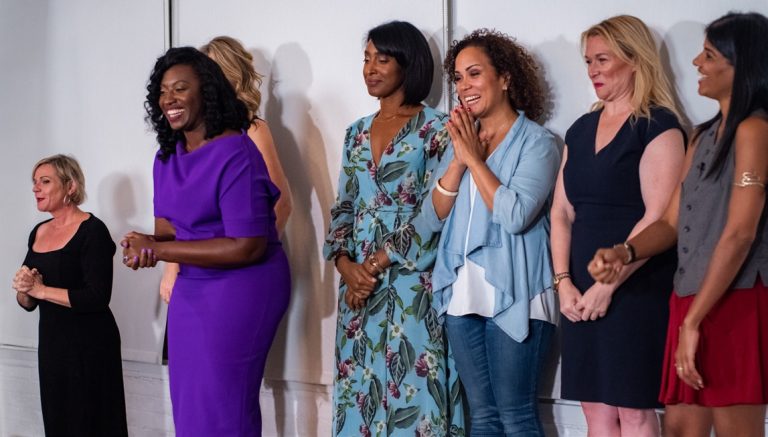The Crucial Role of a General Evaluator in Toastmasters Meetings
Toastmasters International is renowned for its emphasis on effective communication and leadership development. Within this dynamic organization, every role, no matter how small or large, plays a significant part in fostering personal growth and improvement. The General Evaluator, a pivotal position within a Toastmasters meeting, exemplifies this commitment to development and enhancement.
Roles of a General Evaluator:
1. The Ultimate Observer: The General Evaluator is the member who evaluates everything that transpires throughout the meeting. This all-encompassing role requires a keen eye for detail, a sharp ear for communication, and a commitment to providing constructive feedback.
2. A Leader in Action: Beyond evaluating, the General Evaluator embodies essential leadership skills, including critical thinking, planning, preparation, organization, time management, motivation, and team building. This role serves as a training ground for honing these vital abilities.
3. The Captain of the Evaluation Team: The General Evaluator shoulders the responsibility of overseeing the entire evaluation team. This team comprises the timer, grammarian, Ah-Counter, speech evaluators, and Table Topics evaluator if your club includes one. Ensuring the evaluation team operates smoothly is a key aspect of the General Evaluator’s role.
4. Flexibility in Approach: Traditionally, there is one evaluator for each prepared speech, but this isn’t set in stone. Clubs have the freedom to establish their procedures. Regardless of the approach, each evaluation should strike a balance between brevity and completeness.
5. Return Control to the Toastmaster: At the conclusion of the evaluation segment, the General Evaluator gracefully returns control to the Toastmaster, providing closure to this phase of the meeting.
Activities by a General Evaluator
In the vibrant world of Toastmasters International, where individuals gather to enhance their communication and leadership skills, every role within a meeting holds a unique significance. Among these roles, the General Evaluator stands as a linchpin, orchestrating a symphony of evaluations and providing valuable feedback to help members grow. This pivotal role goes beyond critique; it encompasses leadership, organization, and astute observation.
As we delve into the activities of a General Evaluator in a Toastmasters meeting, we’ll uncover the multifaceted responsibilities that make this role central to the club’s success. From pre-meeting preparations to insightful assessments during the meeting itself, the General Evaluator plays a vital part in fostering a supportive environment where members thrive. Let’s explore the essential tasks and duties that define the role of a General Evaluator, elevating the Toastmasters experience for all.
Before the Meeting:
6. Confirm the Program: Prior to the meeting, liaise with the Toastmaster to confirm the program and check for any planned deviations from the standard meeting format.
7. Coordinate with Evaluators: Communicate with all evaluators to ascertain whom they will evaluate and the evaluation format required. Encourage them to contact the speakers to discuss any specific evaluation needs. Emphasize the importance of positive, supportive, and honest evaluations as their ultimate goal is to aid fellow members in skill development.
8. Rally the Evaluation Team: Contact the remaining members of the evaluation team to remind them of their roles and responsibilities during the meeting.
9. Educate for Guests: Prepare a concise presentation on the purpose, techniques, and benefits of evaluation to benefit any guests attending the meeting.
Upon Arrival at the Meeting:
10. Facilitate Evaluation: Ensure that individual evaluators have the necessary materials to evaluate speakers or club leaders effectively. Confirm their understanding of the evaluation criteria and their comfort in fulfilling their roles.
11. Welcome Evaluators: Greet all evaluators warmly. If one evaluator is absent, collaborate with the Vice President Education to arrange a substitute.
12. Coordinate with Team: Check with the grammarian for the word of the day and ensure the timer is briefed on each speaker’s allotted time.
13. Observe Actively: Position yourself toward the back of the room for an unobstructed view of the meeting and its participants. Engage in attentive observation to evaluate if the meeting adheres to the schedule and if participants fulfill their roles efficiently.
During the Meeting:
14. Comprehensive Notes: Take meticulous notes about every aspect of the meeting, including potential missed opportunities or unnecessary distractions. Monitor the timing of each segment, ensuring that the meeting adheres to its schedule.
15. Evaluate Everyone: Evaluate each participant on the meeting program, recognizing instances of effective preparation, organization, delivery, enthusiasm, observation, and duty performance. Although speakers and leaders have assigned evaluators, you have the liberty to add comments if desired.
16. Team Introduction: Before the Table Topics session, you may be requested to elucidate your evaluation team’s methods and means of evaluation briefly. Provide a concise overview of the evaluation process.
17. Acknowledge the Team: Identify the grammarian, Ah-Counter, and timer, and request them to briefly elucidate the purpose of their roles.
18. Lead the Evaluation Section: When called upon to conduct the evaluation segment, stand at the lectern and introduce each speech evaluator. Afterward, express gratitude for their contributions.
19. Deliver Constructive Feedback: In your role as General Evaluator, provide a comprehensive evaluation based on the notes you’ve taken throughout the meeting. Craft your feedback to inspire and support club members while identifying areas for improvement. Offer insights into individual speech and leadership role evaluations, emphasizing adherence to established criteria and the provision of specific, meaningful feedback.
Finishing Lines
The role of a General Evaluator in a Toastmasters meeting is indispensable, as it not only evaluates individual performance but also nurtures a culture of growth and excellence within the club. By shouldering this responsibility with diligence and a commitment to constructive feedback, the General Evaluator contributes significantly to the development of communication and leadership skills among club members.
